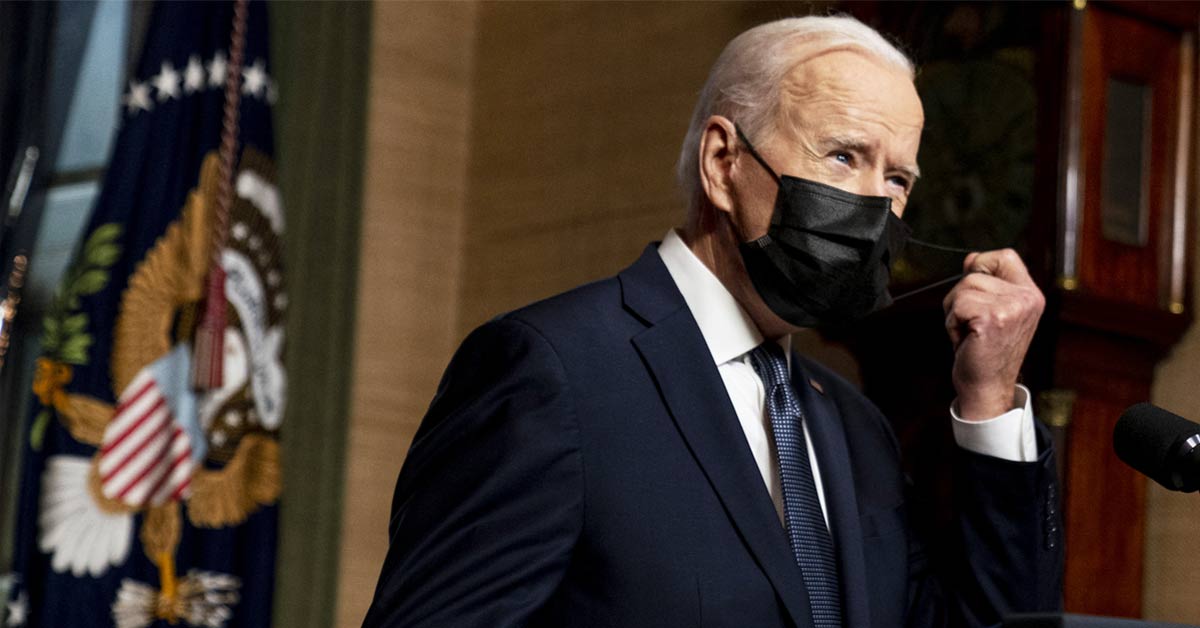President Joe Biden announced Wednesday it's "time to end" America's longest war with the unconditional withdrawal of troops from Afghanistan, where they have spent two decades in a bloody, increasingly futile battle against the Taliban.
Dubbed the "forever war," the United States (US) military onslaught in Afghanistan began in response to the 11 September, 2001 attacks against the US.
Now, 20 years later – after almost 2,400 US military and tens of thousands of Afghan deaths – Biden named 11 September as the deadline by which the last US soldiers will have finally departed. The pull-out will begin on 1 May.
In a nationally televised address, Biden said the US had accomplished its limited original mission of crushing the international jihadist groups behind the 9/11 attacks and that with every passing year the rationale for staying was more "unclear."
Biden insisted there would be no "hasty exit," but was adamant about his decision.
"A horrific attack 20 years ago... cannot explain why we should remain there in 2021," he said. "It's time to end the forever war."
The conflict is at best at a stalemate. The internationally backed government in Kabul has only tenuous control in swaths of the country, while the Taliban are growing in strength, with many predicting the insurgency will seek to regain total power once the government's US military umbrella is removed.
Biden told Americans that it was time to accept reality.
"We cannot continue the cycle of extending or expanding our military presence in Afghanistan hoping to create the ideal conditions for our withdrawal, expecting a different result," he said.
"I am now the fourth American president to preside over an American troop presence in Afghanistan. Two Republicans. Two Democrats," he said. "I will not pass this responsibility to a fifth."
Biden's decision was not a shock. The war is hugely unpopular among voters and Biden's predecessor Donald Trump had committed to pulling out at the start of May.
"I applaud President Biden's decision," top Democratic Senator Chuck Schumer said Wednesday.
However, there was immediate criticism from some quarters that the US is abandoning the Afghan government and encouraging jihadist insurgencies.
"We're to help our adversaries ring in the anniversary of the 9/11 attacks by gift wrapping the country, and handing it right back to them," senior Republican Senator Mitch McConnell said.
Immediately after the speech, an emotional Biden walked under light rain through Arlington National Cemetery, and told reporters that his decision had ultimately not been difficult.
"It was absolutely clear," he said.
Afghan Forces On Own
Afghan President Ashraf Ghani insisted Wednesday after a phone call with Biden that his forces are "fully capable" of controlling the country.
And Biden said that Washington will continue to support the Afghan government, only not "militarily," according to the excerpts.
He also said the US will "hold the Taliban accountable" on promises to keep international jihadists from setting up base in Afghanistan. Pakistan, which has close links to the Taliban, should "do more" to support Afghanistan.
But the US exit will mark a profound shift in clout for the beleaguered Kabul government and its US and coalition-trained security forces.
A decade ago, the US had 100,000 troops in Afghanistan.
Today there is a US-led NATO force of about 9,600, with some 2,500 of those soldiers American. NATO announced that the withdrawal would be "orderly, coordinated and deliberate," beginning on 1 May.
NATO Secretary General Jens Stoltenberg said the exit "entails risk" but the alternative is "a long-term, open-ended military commitment with potentially more NATO troops."
Biden had earlier considered stationing a residual US force to strike at Al-Qaeda or other international jihadist groups in Afghanistan or making withdrawal contingent on progress on the ground or in slow-moving peace talks.
In the end, all conditions were dropped and only guards for installations like the US embassy in Kabul will stay.
Women's Future In Question
US officials are warning the Taliban – who are observing a truce with US but not with Afghan forces –not to strike coalition forces as they leave.
"We will hit back hard," a senior Biden administration official said.
A threat assessment report published Tuesday by the director of US national intelligence said the Taliban "is confident it can achieve military victory."
But CIA Director William Burns said Wednesday that after "years of sustained counterterrorism pressure" Afghan-based international jihadist groups are no longer a major threat to the US itself.
Aside from the military landscape, the US exit will raise big questions over the future of attempts to modernise Afghanistan, especially for Afghan women who have benefited from increased rights, like access to education.
The Taliban, who enforce an austere brand of Sunni Islam, banned women from schools, offices, music and most of daily life during their 1996-2001 rule over much of Afghanistan. Two decades later, 40 percent of schoolchildren are girls. – AFP
Related Articles:
